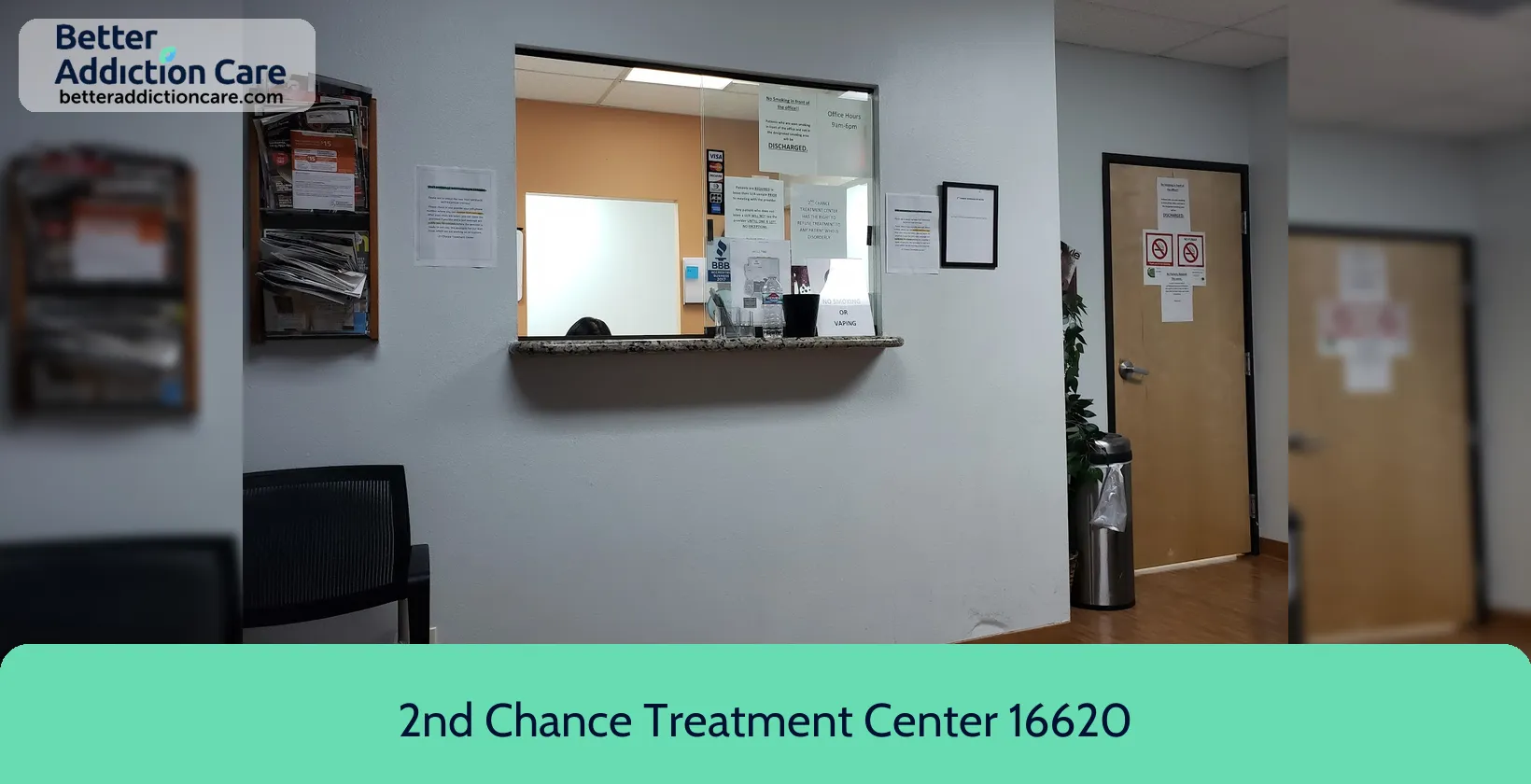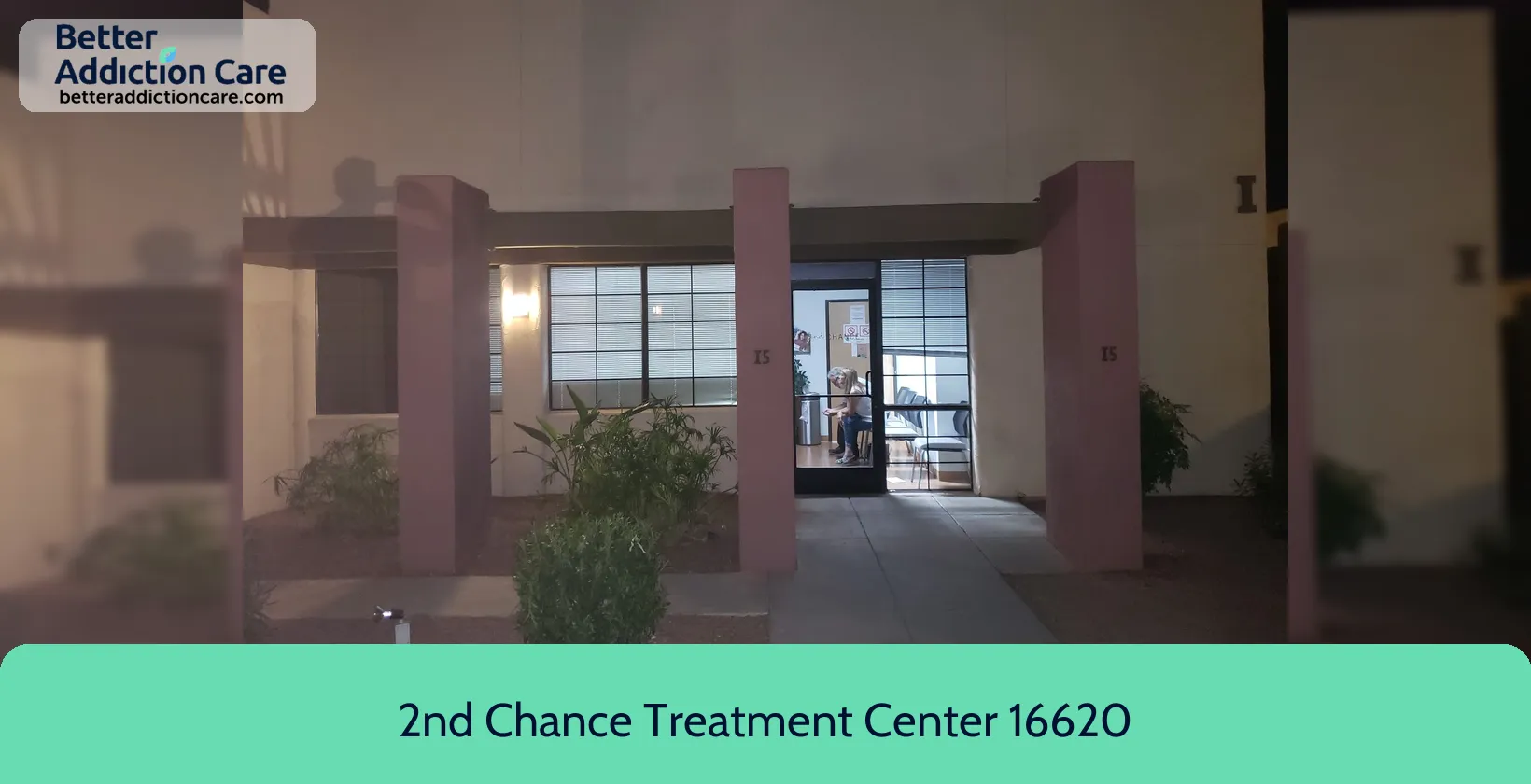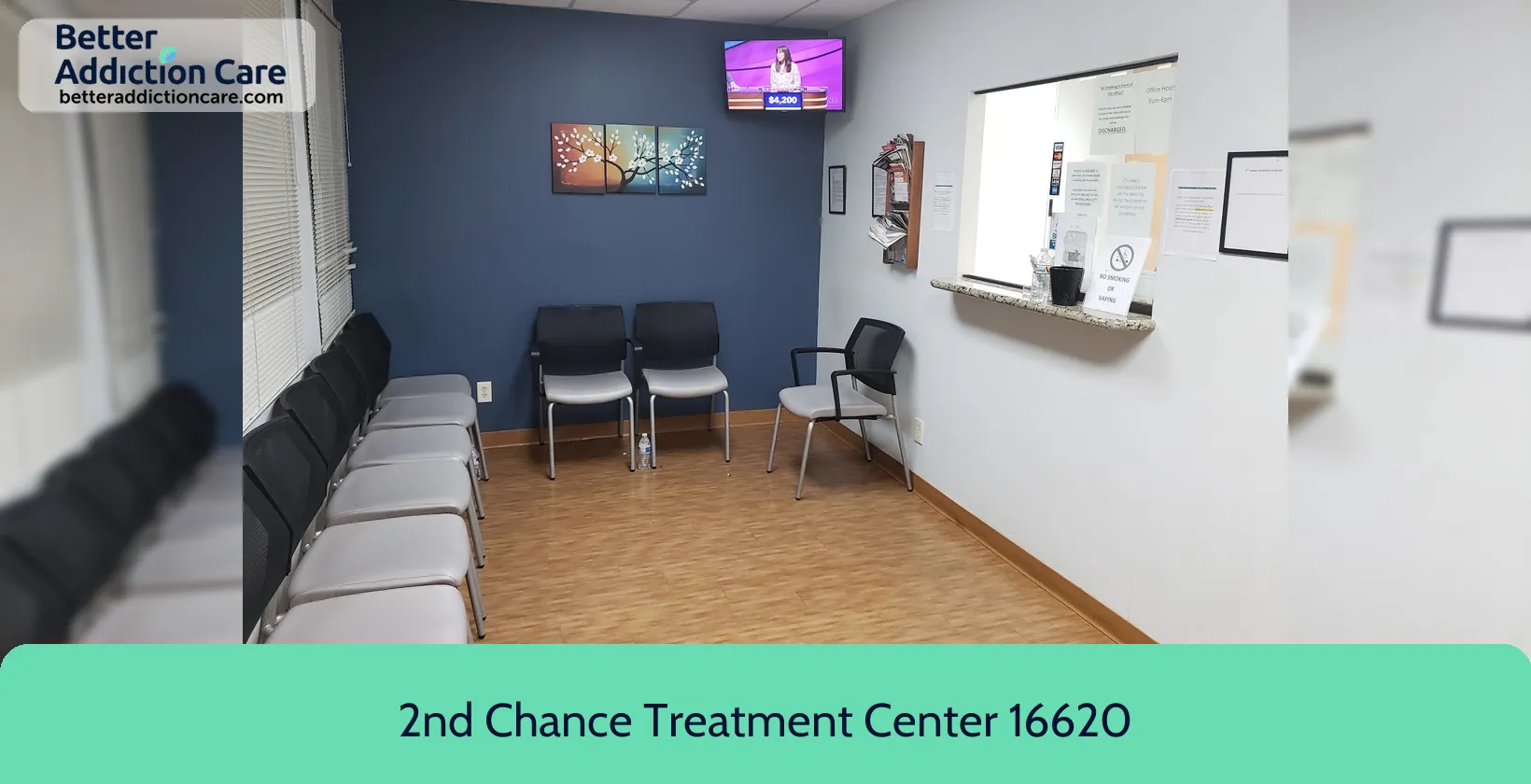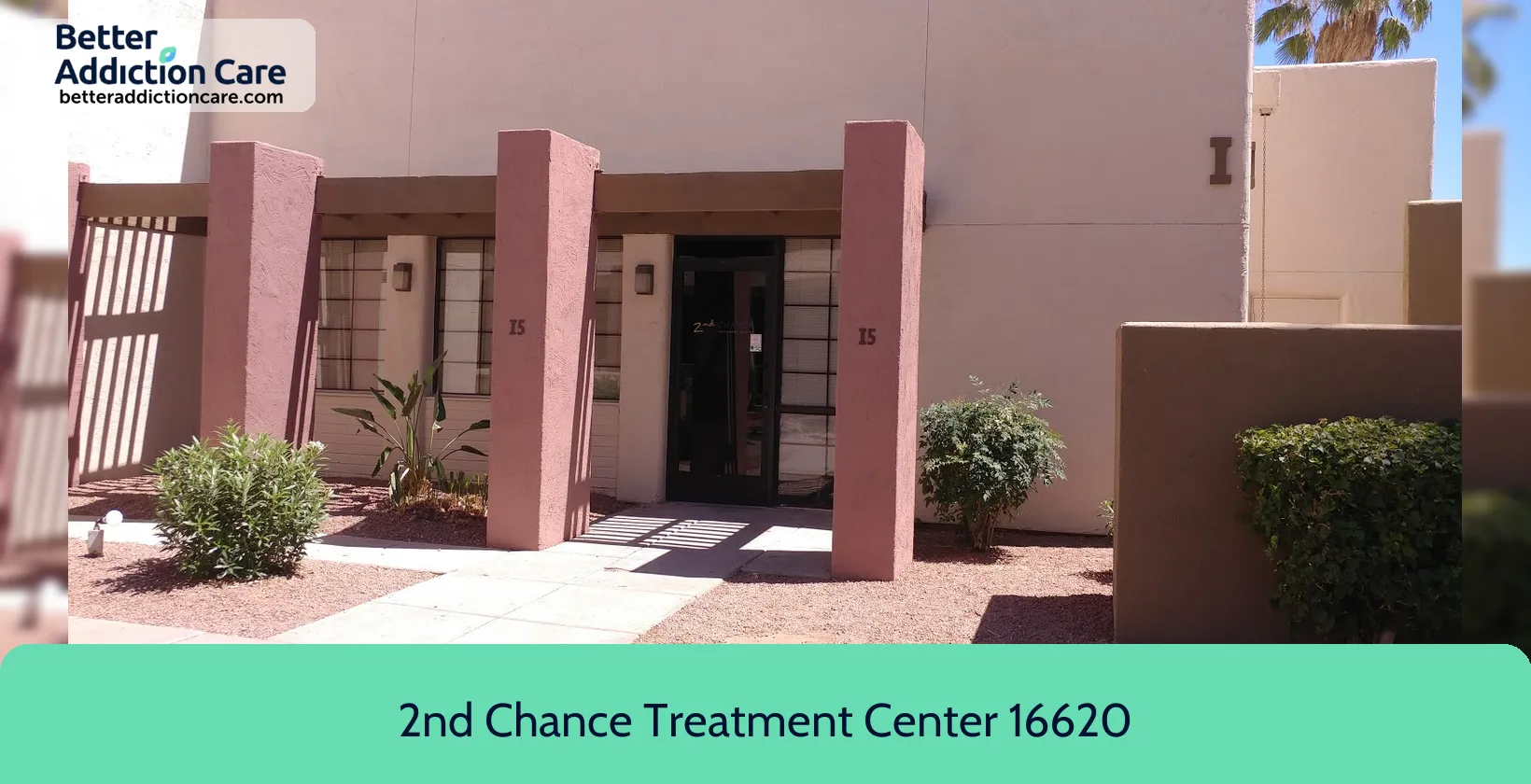2nd Chance Treatment Center 16620 North 40th Street
Overview
2nd Chance Treatment Center 16620 North 40th Street is an accredited mental health treatment center that provides outpatient detoxification, for men and women from 18+ years of age. As part of their special programs, 2nd Chance Treatment Center 16620 North 40th Street treats clients with co-occurring mental and substance use disorders, veterans, and active duty military. To help patients achieve sobriety, 2nd Chance Treatment Center 16620 North 40th Street provides treats alcohol detoxification, benzodiazepines detoxification, and cocaine detoxification.. Afterward, patients receive individual psychotherapy, cognitive behavioral therapy, and integrated mental and substance use disorder treatment during treatment. 2nd Chance Treatment Center 16620 North 40th Street is located in Phoenix, Arizona, providing treatment for people in Maricopa County, accepting cash or self-payment, medicaid, and medicare.
2nd Chance Treatment Center 16620 North 40th Street at a Glance
Payment Options
- Cash or self-payment
- Medicaid
- Medicare
- State-financed health insurance plan other than Medicaid
- Private health insurance
Assessments
- Comprehensive mental health assessment
- Comprehensive substance use assessment
- Outreach to persons in the community
- Screening for mental disorders
- Screening for substance use
Age Groups
- Seniors or older adults
- Adolescents
- Young adults
- Children/adolescents
- Adults
Ancillary Services
- Court-ordered outpatient treatment
- Mental health services
- Transportation assistance
Highlights About 2nd Chance Treatment Center 16620 North 40th Street
7.08/10
With an overall rating of 7.08/10, this facility has following balanced range of services. Alcohol Rehabilitation: 8.00/10, Drug Rehab and Detox: 7.23/10, Insurance and Payments: 6.00/10, Treatment Options: 7.09/10.-
Alcohol Rehabilitation 8.00
-
Drug Rehab and Detox 7.23
-
Treatment Options 7.09
-
Insurance and Payments 6.00
Accreditations
State department of health:

Government agencies issue State Licenses, granting rehabilitation organizations permission to operate their businesses legally within specific geographic regions. The licenses needed for legal operation are typically determined by the type of rehabilitation program offered by a facility and its physical location.
Treatment At 2nd Chance Treatment Center 16620 North 40th Street
Treatment Conditions
- Mental health treatment
- Substance use treatment
- Co-occurring Disorders
Care Levels
- Outpatient
- Outpatient detoxification
- Outpatient methadone/buprenorphine or naltrexone treatment
- Regular outpatient treatment
- Aftercare
Treatment Modalities
- Individual psychotherapy
- Cognitive behavioral therapy
- Integrated Mental and Substance Use Disorder treatment
- Telemedicine/telehealth therapy
- Substance use disorder counseling
Ancillary Services
Additional Services
- Pharmacotherapies administered during treatment
- Naloxone and overdose education
- Drug or alcohol urine screening
Special Programs
- Clients with co-occurring mental and substance use disorders
- Veterans
- Active duty military
- Members of military families
- Criminal justice (other than DUI/DWI)/Forensic clients
Get Help Now
Common Questions About 2nd Chance Treatment Center 16620 North 40th Street
Contact Information
Other Facilities in Phoenix

7.23

6.56

6.74

6.68

7.14

6.74

6.59

6.59
DISCLAIMER: The facility name, logo and brand are the property and registered trademarks of Arizona MENTOR - Chestnut, and are being used for identification and informational purposes only. Use of these names, logos and brands shall not imply endorsement. BetterAddictionCare.com is not affiliated with or sponsored by Arizona MENTOR - Chestnut.




